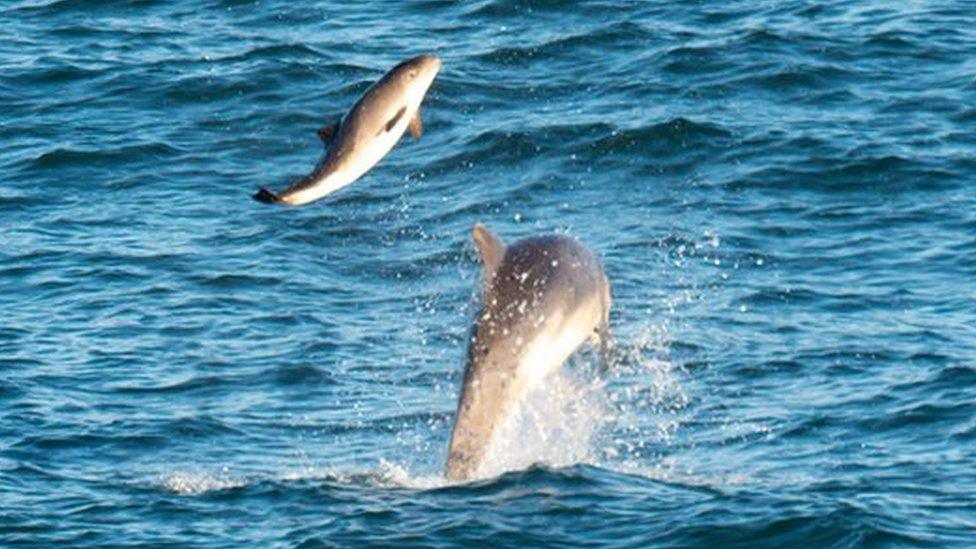Debate over plan to phase out Pacific oyster farms in Cornwall
- Published
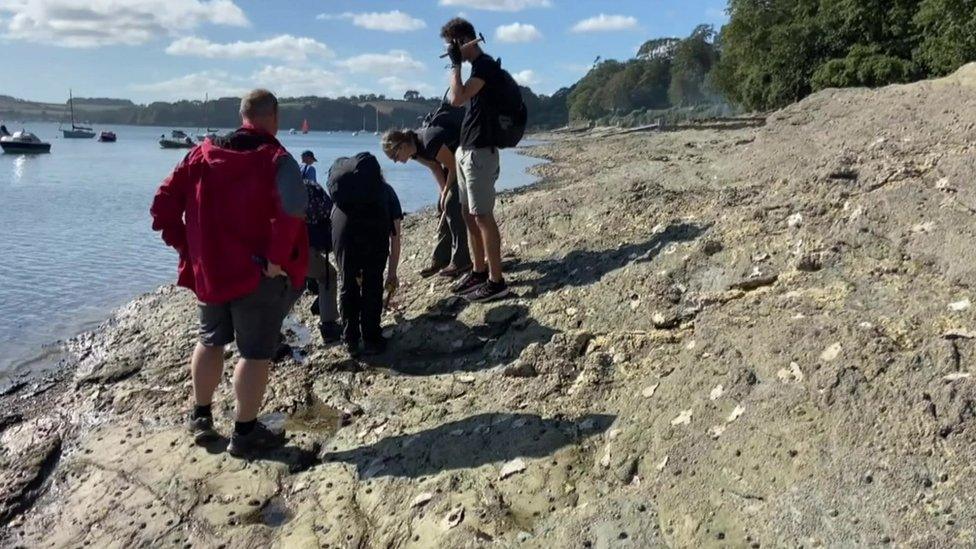
Conservationists in Loe Bar, Cornwall
A Duchy of Cornwall scheme to "phase out" Pacific oyster farms on its land to protect native species has sparked concern in the shellfish industry.
It comes as the Department for Environment, Food and Rural Affairs (Defra) considers introducing its own "control measures" for oyster farms.
The Shellfish Association of Great Britain warned curtailing the industry would damage businesses.
But Cornwall Wildlife Trust said overpopulation was "terrifying".
Pacific oysters have been found in every estuary on the south coast of Devon and Cornwall, from Newlyn to Kingsbridge.
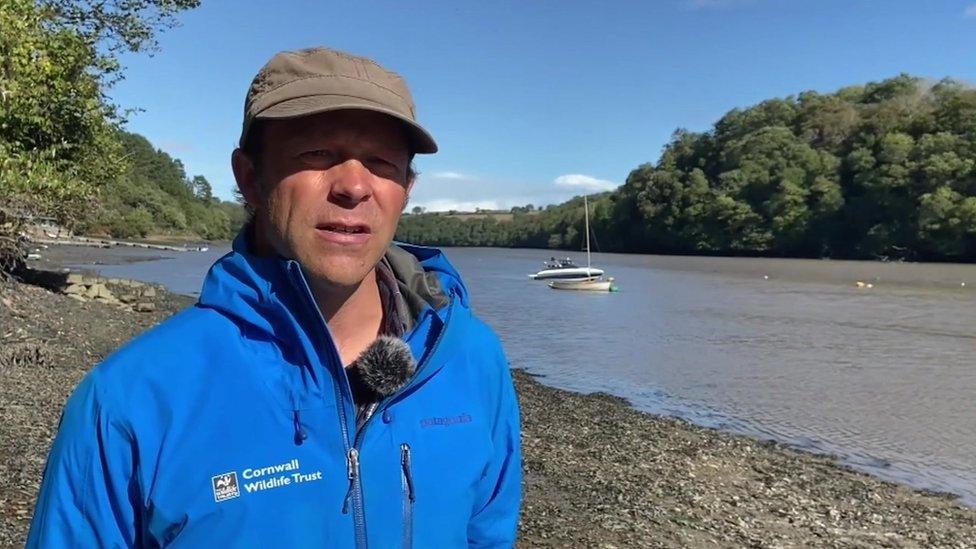
Matt Slater, from the Cornwall Wildlife Trust, said the numbers of Pacific oysters was 'terrifying'
According to a parliamentary debate, the Duchy of Cornwall has decided to "phase out" Pacific oyster farms due to the species' classification as "non-native and invasive".
Matt Slater, marine conservation officer at the Cornwall Wildlife Trust, is among environmentalists who argue the species, brought to the UK from the US and Canada and farmed during the 1960s and 1970s, is detrimental.
He led a volunteer group to chip them off the rocks at Loe Bar Beach in Helston, Cornwall.
He said: "The numbers that we are seeing now are pretty terrifying.
"A few years ago there were virtually none in many of the areas we survey and now we are finding thousands of oysters."
He said without more control there could be "deep beds" of oysters "encrusting harbours, slipways and also encroaching on this important protected estuarine habitat".

Totnes MP Anthony Mangnall said the Duchy of Cornwall was "overreacting"
David Jarrad, from the Shellfish Association of Great Britain, said native oysters had been hit by "disease, pollution and overfishing", rather than a Pacific oyster takeover.
He added: "Sadly the UK stands alone in the whole of Europe in recognising this is as a problem.
"All other European countries support their agricultural industry and accept that the Pacific oyster is naturalised as indeed it is around the UK coast."
He called for the species to be reclassified as "naturalised".
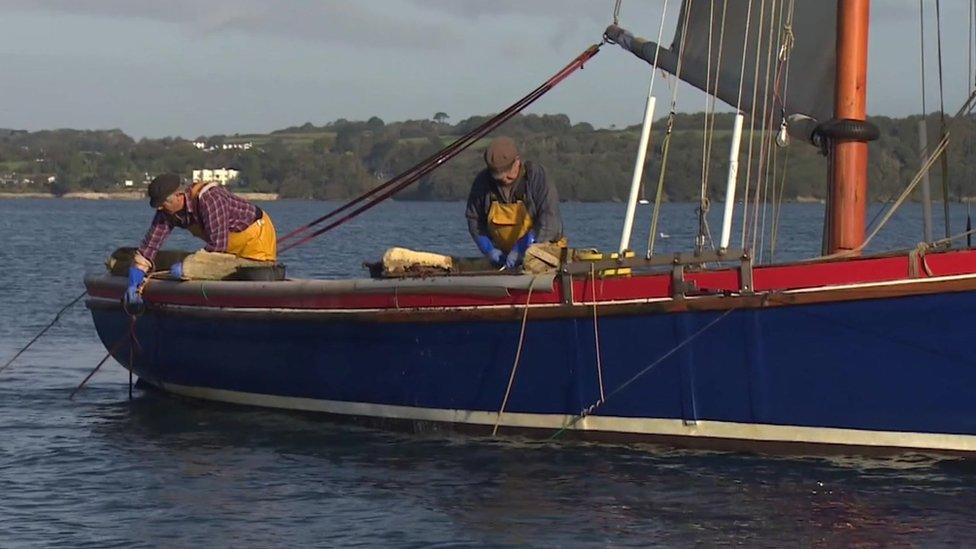
Oyster fishing on the Fal River in Cornwall
Meanwhile, Anthony Mangnall, Totnes MP, said the Duchy of Cornwall was "overreacting".
In a parliamentary debate, Mr Mangnall said the Duchy's decision would "close three to four businesses" in his constituency and "impact hundreds more across the country".
He added: "It will also provide the example for other landline or shoreline owners to do so."
Natural England data revealed hotspots such as at Wilcove in Torpoint where up to 396 Pacific oysters were counted per metre square, with a similar number in the Fowey Estuary.
A Defra spokesperson said: "The Pacific oyster is an invasive non-native species in Great Britain but also an important species for the aquaculture industry with potential for growth."
They said regulators were "considering control measures" on existing farms to reduce the risk posed to native marine species while "supporting aquaculture as much as possible".
They added: "In areas where Pacific oysters are not yet well established - and the spread of the species can still be slowed - we do not support new or expanded farms."
The Duchy of Cornwall said in a statement: "Oysters are farmed on a small scale within the Duchy's Devon and Cornwall marine estate.
"Where feasible, the Duchy are encouraging the growing of native oysters and are working closely with our licensees during this period of transition."

Follow BBC News South West on Twitter, external, Facebook, external and Instagram, external. Send your story ideas to spotlight@bbc.co.uk, external.
Related topics
- Published4 November 2021
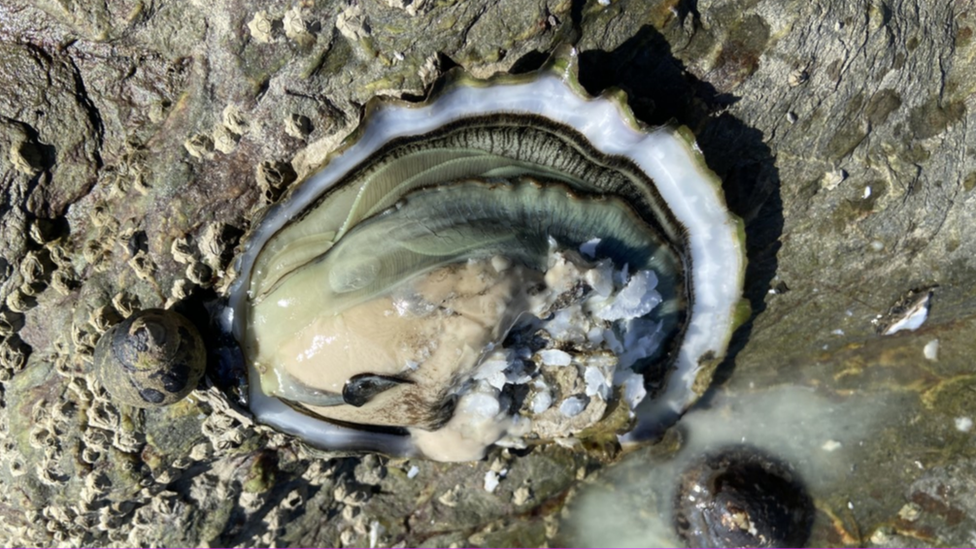
- Published20 September 2012
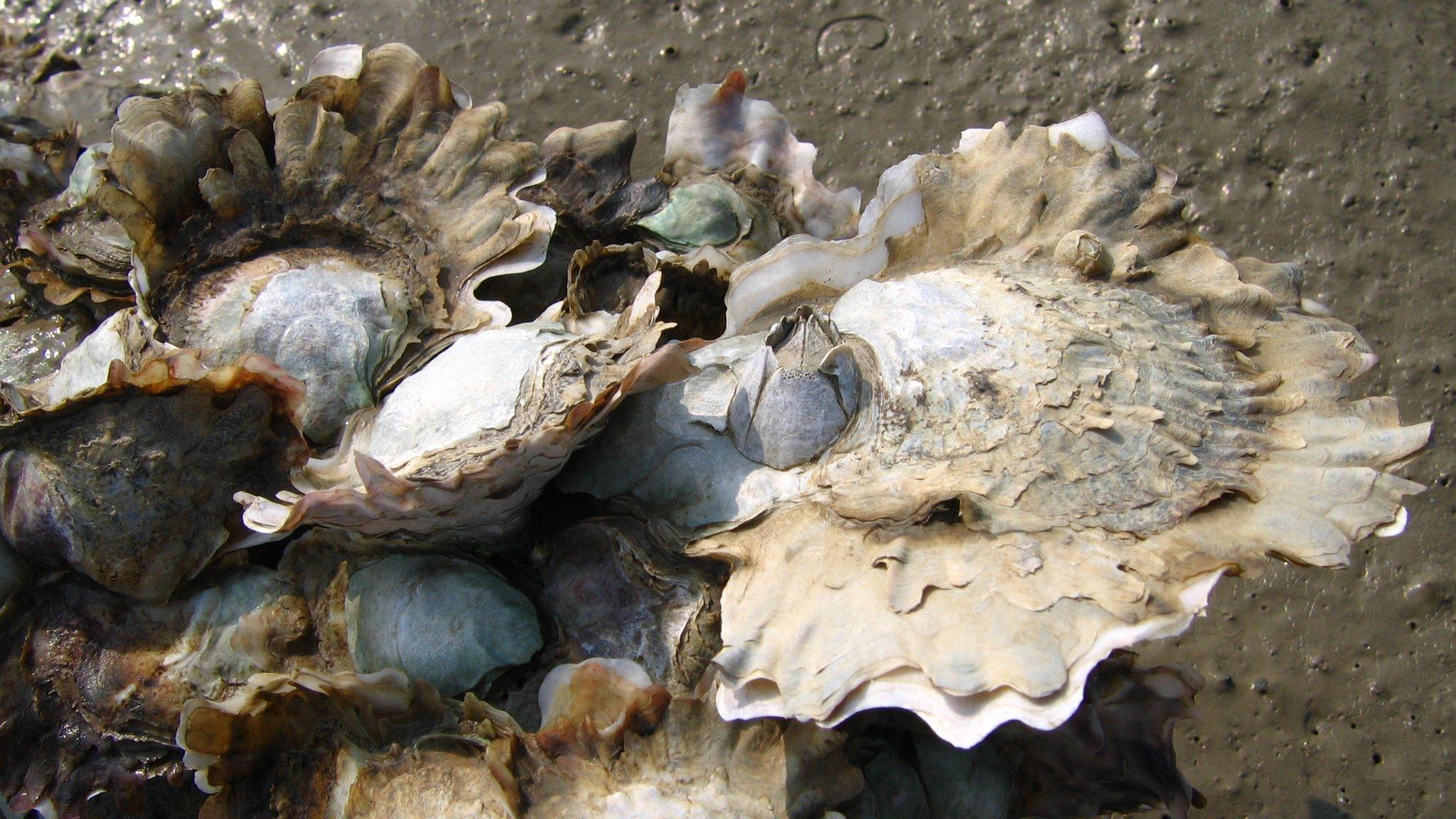
- Published14 March 2023
